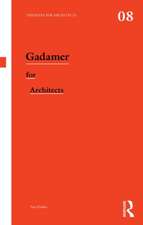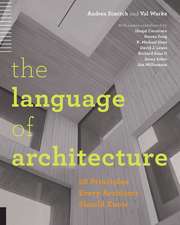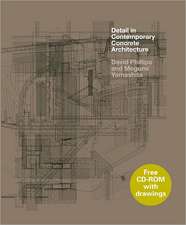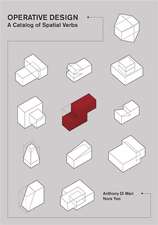Architecture for a Free Subjectivity: Deleuze and Guattari at the Horizon of the Real
Autor Simone Brotten Limba Engleză Hardback – 28 aug 2011
Preț: 1109.18 lei
Preț vechi: 1352.65 lei
-18% Nou
Puncte Express: 1664
Preț estimativ în valută:
212.23€ • 221.61$ • 175.26£
212.23€ • 221.61$ • 175.26£
Carte tipărită la comandă
Livrare economică 16-30 aprilie
Preluare comenzi: 021 569.72.76
Specificații
ISBN-13: 9781409419952
ISBN-10: 1409419959
Pagini: 150
Ilustrații: black & white illustrations
Dimensiuni: 156 x 234 x 10 mm
Greutate: 0.45 kg
Ediția:New ed
Editura: Taylor & Francis
Colecția Routledge
Locul publicării:Oxford, United Kingdom
ISBN-10: 1409419959
Pagini: 150
Ilustrații: black & white illustrations
Dimensiuni: 156 x 234 x 10 mm
Greutate: 0.45 kg
Ediția:New ed
Editura: Taylor & Francis
Colecția Routledge
Locul publicării:Oxford, United Kingdom
Cuprins
Contents: Foreword; Introduction: subjectivization; Deleuze and 'the intercessors'; Impersonal effects; Impersonal effects 2; Guattari and the Japanese new wave; Shinohara and Takamatsu: objets verité; Architecture without qualities; Bibliography; Index.
Notă biografică
Dr, Simone Brott is a Lecturer in Architecture at the Queensland University of Technology, Australia
Recenzii
'In a series of deeply thought, and entirely original chapters, the book explores the potentialities of Deleuze and Guattari's theories of impersonality and effects, and substitutes the idea of subjectivization for that of "the" subject. The book is expert in deploying its arguments towards a coherent and original conclusion, even as it admits of a wide range of philosophical and ideological positions as counterpoints.' Anthony Vidler,The Cooper Union, New York, USA 'In the last twenty years, the literature on Deleuze in art and architecture has mushroomed. In this book, Simone Brott not only shows a strong sense of development in this larger literature; she also defines a new workable position.' John Rajchman, Columbia University, USA
Descriere
This book explores the architectural significance of Deleuze's philosophy of subjectivization, and Guattari's overlooked dialogue on architecture and subjectivity. In doing so, it proposes that subjectivity is no longer the exclusive provenance of human beings, but extends to the architectural, the cinematic, the erotic, and the political. It defines a new position within the literature on Deleuze and architecture, while highlighting the neglected issue of subjectivity in contemporary discussion.







